Virginia: Toll Road Users Sue Over Diversion of Funds to Rail
Users of the Dulles Toll Road in Northern Virginia filed a federal class action lawsuit yesterday seeking refunds from toll hikes imposed to fund a $7 billion mass transit project. Great Falls resident John B. Corr and Hillsboro resident John W. Grigsby argued that the Metropolitan Washington Airports Authority (MWAA) has no authority to set toll rates and that the diversion of over $130 million from motorists constitutes an illegal tax.
LA Court: Ticket Quotas Not Cool
Ticket quotas seem to be one of those facts of life that exists, unexamined, in law enforcement departments around the country. But this week the concept has been dragged out into the light of the justice system, as two LAPD officers have won a lawsuit against their department’s ticket quota system. The LAT reports:
Officers Howard Chan and David Benioff, veteran motor officers with the LAPD’s West Traffic Division, sued the department in 2009, alleging that their captain mandated each motor officer to write 18 tickets a day, according to the suit.
In addition to the quota, officers were told the tickets they gave out had to be for “major movers” such as speeding, lane straddling or running a red light — offenses that could each generate revenue of several hundred dollars each.
The civil court jury sided with the officers by a vote of 11 to 1. The damage award [of $2m] was for loss of reputation and specific employment actions against the officers by the department affecting their careers after they reported the misconduct and refused to meet the quotas.
The department defended itself by arguing that, rather than a specific quota, the department had broad goals intended to reduce injuries and fatalities. That argument was roundly rejected by the jury, which found in favor of the suing officers 11-1, after a former LAPD commander testified that gas prices and paramedic response times had far more to do with injury and fatality levels. With any luck, this ruling may even create precedent to eliminate quota systems around the country. Meanwhile, MyFoxLA reports that the LAPD is appealing the ruling.
Australia: Employee Alters Traffic Camera Ticket Data
The employee of a photo enforcement firm was arrested in Victoria, Australia yesterday after being accused of adjusting the speed readings in a database of photo tickets. Police believe the man identified as a 36-year-old from Craigieburn changed the date, time, speeds and other variables on a total of 67,541 red light camera and speed camera citations. The data were altered between February and March while the man worked for Serco, the private firm in charge of ticketing operations.
California: Accidents Increase at Photo Enforced Intersections
The city council in Highland, California decided three years ago to allow an Australian company, Redflex Traffic Systems, issue tickets at two intersections. Nearly 4300 “violations” have been generated since August 2008, each worth nearly $500. A committee of the council opened debate yesterday on whether the automated ticketing machine contract should be renewed. When the same question was debated last year, officials focused on safety.
Canada: Group Protests Winnipeg Speed Camera
Activists in Winnipeg, Canada have hounded city officials about problems with the photo radar program. The group WiseUpWinnipeg caught the city using improper warning signs, hiding information from freedom of information requests and exploiting short yellow timing at intersections. The group’s leader, Larry Stefanuik, believed it was time to “amp it up” after his findings have been ignored.
California: Second Shot at Red Light Camera Tweak
The California Senate Appropriations committee voted 9-0 on March 29 to advance legislation that would alter the way red light cameras operate in the state. State Senator Joe Simitian (D-Palo Alto) re-introduced legislation that had stalled last year tweaking some of the more controversial aspects of automated ticketing programs.
WHO Blames Traffic Noise For Thousands Of European Heart Attacks Each Year
If there’s one factor that most dims enthusiasm for cars, it’s probably traffic. The frustration, misanthropy and waste engendered by traffic are such that it would come as no surprise to learn that traffic-related stress causes a number of health problems. But, according to a study by the World Health Organization [ PDF here], you don’t even need to be stuck in traffic to be negatively affected by it. According to a WHO press release,
Traffic-related noise accounts for over 1 million healthy years of life lost annually to ill health, disability or early death in the western countries in the WHO European Region. This is the main conclusion of the first report assessing the burden of disease from environmental noise in Europe, released today by WHO/Europe. Noise causes or contributes to not only annoyance and sleep disturbance but also heart attacks, learning disabilities and tinnitus.
Traffic: the not-so-silent killer?
Kansas Legislature Approves 75 MPH Speed Limit
The top legal speed in the state of Kansas is one signature away from becoming 75 MPH. State legislators on Friday gave final approval to a bill raising the limit from 70 to 75 MPH. If approved by Governor Sam Brownback (R), Kansas would join a dozen other states that have already made the move. Only Texas and Utah have a higher, 80 MPH limit.
Florida: City Considers Cameras as Ticket Quota Alternative
The Tampa, Florida city council tomorrow will consider adopting a contract granting American Traffic Solutions (ATS) the right to issue $158 tickets at intersections. At a meeting last month, half of the council’s members supported installation while the other half opposed — forcing the idea to be reconsidered at the upcoming meeting where a member absent from the last meeting is expected to cast the deciding vote. Opponents suggested the cameras had little to do with safety.
Federal Appeals Court Defends Red Light Cameras
Judges in the country’s most activist federal circuit on Thursday ruled in favor of red light camera use in Washington state. A three-judge panel of the Ninth Circuit US Court of Appeals issued an unpublished memorandum order dismissing a state law challenge to the photo fine amounts and “cost neutrality” compensation arrangements of municipalities.
Chicago Camera Front Group Thwarts Texas Referendum
An Australian company has hired kingmakers from Chicago, Illinois to prevent Texas residents from being able to decide whether or not red light cameras should be used in their community. A “grassroots” group calling itself the Texas Traffic Safety coalition filed a lawsuit to stop the city of Port Lavaca, Texas from holding a referendum on the photo enforcement program run by Melbourne-based Redflex. Although no court order was issued in the case, the city council decided not to hold the election, despite the city charter’s instruction that the council must place a qualified petition on the ballot.
Legislative Update: Four States Advance Traffic Camera Modification Bills
Lawmakers in four states this week advanced legislation that would, if passed, either place mild restrictions on or outright ban the use of automated ticketing machines by municipalities. The Florida state Senate Transportation Committee on Tuesday voted 4 to 2 to approve an outright prohibition on the use of red light cameras — just one year after the legislature had given in to the lobbying effort of localities in authorizing their use. Senate Bill 672 must now clear the Senate Community Affairs Committee before being considered by the full Senate.
Texas: Gulf Coast Red Light Camera Controversy Mounts
Red light cameras continue to generate controversy in a pair of Texas towns located off Galveston Bay. Last week, Baytown responded to the lawsuit filed by photo enforcement vendor American Traffic Solutions (ATS) in Harris County court on St. Valentine’s Day alleging breach of contract. The quarrel between the two parties began when voters overruled the city council’s decision to implement automated ticketing machines by imposing a requirement that police personally witness each alleged violation. ATS decided it would not earn sufficient revenue under such an arrangement and pulled out.
Washington: Anti-Camera Referendum Spreads to Redmond
The initiative effort to give voters a say in whether red light cameras and speed cameras are used has spread to a fifth city in Washington state. The group BanCams.com began circulating petitions in Redmond, kicking off an effort on Saturday to gather the 3845 signatures required to put the measure on the ballot. The referendum petition follows the language used in Bellingham, Longview, Monroe and Wenatchee where signatures have been gathered since January.
“The city of Redmond and for-profit companies contracted by the city of Redmond may not install or use automatic ticketing cameras to impose fines from camera surveillance unless such a system is approved by a majority vote of the city council and a majority vote of the people at an election,” Redmond Initiative Number One states.
California: Grand Jury Slams Right Turn Tickets
A Grand Jury in Napa, California last month issued a report calling for reform and refunds in the city’s red light camera program. The jurors uncovered yellow light timing discrepancies and an unusual dependence upon right-turn tickets to generate revenue at the most productive intersection. The Australian vendor Redflex Traffic Systems began issuing tickets in May 2009, and citations at four intersections now cost $475 each. So far, 9278 tickets worth $4 million have been mailed — 3789 of which were sent to vehicle owners that turned right on red.
California: Los Angeles Court Defends Red Light Cameras
A Los Angeles County, California court last month distanced itself from judicial colleagues in defending the use of red light cameras. A three-judge appellate division panel on February 14 upheld the validity of photo ticketing despite the contrary holdings of the appellate division in Alameda, Kern, Orange, San Bernardino and San Mateo counties.
Photo Enforcement Companies Accuse One Another of Deception
The US Court of Appeals for the Ninth Circuit on Friday decided that photo enforcement vendors American Traffic Solutions (ATS) and Redflex were too much at odds with one another to participate in a court mediation program designed to settle tough cases without going to trial. Each firm has filed suit questioning the integrity and ethics of the other. Redflex refers to “ATS’ pattern and practice of consistent false representations.” ATS, in turn, claims Redflex has been making “false and misleading statements of fact concerning its photographic traffic enforcement products and services.”
Italy: More Indictments in Photo Radar Scandal
Italy’s financial police, the Guardia di Finanza, announced in Brescia last week the indictment of five individuals suspected of a 13 million euro (US $18 million) scheme involving tax fraud and rigged speed cameras. Diego Barosi, 60, the head of the Garda Segnale Srl photo enforcement firm would bid on municipal automated ticketing machine contracts against shell companies run by his co-conspirators. They would ensure that Garda ended up landing the lucrative deal.
Missouri Groups Fight Back Against Traffic Camera Astroturf Campaign
Grassroots anti-camera activists in Missouri yesterday charged that a photo enforcement firm was creating fake advocacy groups to promote the use of red light cameras and speed cameras. Wrong on Red and the Jefferson County Tea Party blasted American Traffic Solutions (ATS) for hiding its involvement in a slick advertising effort designed to persuade the legislature to allow photo ticketing to continue uninterrupted in the state.
San Bernardino, California Dumps Red Light Cameras
The city council in San Bernardino, California voted 5 to 0 last week to pull the plug on its red light camera program. The action follows the lead of a growing number of jurisdictions in the Golden State that have grown disillusioned with automated ticketing machines. Most recently, Rocklin‘s cameras were shut off last Tuesday. San Bernardino officials argued it would be worth paying the private contractor American Traffic Solutions (ATS) about $110,000 to get out of the contract before its 2014 expiration date.
Missouri Expands Unpopular Freeway Variable Speed Trap System
The Missouri Department of Transportation (MoDOT) announced Wednesday that it was expanding a system for lowering speed limits on the freeway, despite its own surveys showing the public has a “high level of dissatisfaction with the system.” A study conducted on behalf of MoDOT by the Missouri University of Science and Technology included a few positive statistics about the performance of Variable Speed Limits, but the overall conclusion was that the program failed to provide the promised benefits.
Texas City Ignores Anti-Camera Voter Petition
Officials in Port Lavaca, Texas decided yesterday that they would ignore an initiative petition calling for the 12,000 residents to decide the fate of the red light cameras in a May election ( view petition). Signatures on the petition were certified as valid shortly after being submitted in January and a special city council meeting was scheduled to place the measure on the ballot, but the city decided against holding the vote. The group Port Lavaca Citizens Against Red Light Cameras believes the city is violating the law.
North Carolina Debates Criminalizing, Expanding Traffic Camera Use
A North Carolina lawmaker on Thursday introduced legislation that would make it a crime to operate a red light camera or speed camera. State Senator Don East (R-Pilot Mountain), a twenty-year veteran of the Winston Salem police force, believes that it is not enough to pass a law that merely outlaws photo enforcement.
“It shall be unlawful for any person to operate a traffic control photographic system in this state,” Senate Bill 187 states. “A violation of this section is a Class 1 misdemeanor and shall result in the forfeiture of any photographic system used for traffic control.”
More California Cities Close to Dumping Red Light Cameras
Two more California communities are questioning the wisdom of photo enforcement. As of today, red light cameras are no longer operational in Rocklin after the city council decided not to renew the contract with Redflex Traffic Systems of Australia. The council in Victorville felt the same way but found it much more difficult to pull the plug on automated ticketing machines.
Rocklin began using cameras at two intersections in 2006, but the program failed to generate the significant amount of revenue promised. The expiration of the five-year contract allowed the city to end the project painlessly, avoiding a number of upcoming legal and policy perils.
Australia: Influential Group Has Its Photo Enforcement Tickets Canceled
The Ombudsman for Victoria, Australia accused a secretive organization known as The Brotherhood of using its influence to have speed camera and red light camera tickets canceled for its founder. Ombudsman George E. Brouwer transmitted a report to the legislative assembly Tuesday providing detail about the group’s 150 members which include state police, government officials, a member of parliament, representatives from insurance firms, financial institutions and the media.
New Jersey: Longer Yellow Eliminates Red Light Running
Red light running all but disappeared at a New Jersey intersection after the duration of the yellow light warning time was increased under threat of a lawsuit. Glassboro gave the private company American Traffic Solutions (ATS) permission to issue red light camera tickets at the intersection of William Dalton Drive and Delsea Drive on March 26. The location was so successful at issuing $85 tickets that it generated $1 million worth of notices within just seven months.
Has Photo Enforcement Peaked?
The largest operator of red light cameras and speed cameras in the United States experienced essentially no growth in the first half of the fiscal 2011. Melbourne-based Redflex Traffic Systems told Australian investors Friday that its revenue increased by a three-tenths of a percent over the same period last year — less than the rate of inflation. In 2009, Redflex sales were booming with the activation of 445 new systems. In 2011, Redflex only boasted eight new contracts.
“As a result of the macro economic challenges facing the US market throughout 2010, and the current politically challenging times, new contract executions have declined,” the Redflex filing explained. “The number of installed systems includes some cameras that may not be generating revenues for various reasons including: warning periods; delays in going live; legislative issues; road work; or maintenance actions.”
UK Contemplates 80 MPH Speed Limit
The Daily Mail reports
Motorway speed limits could rise to 80 mph to shorten journey times and boost the economy under a radical review of road safety, Transport Secretary Philip Hammond signalled today.
He is concerned that anti-car campaigners have for too long used ‘road safety’ as a convenient excuse to both stymie raising speed the limit on motorways from the current 70mph, and to push for more 20mph zones in urban areas – even when they are inappropriate.
Britain has some of the safest roads in Europe, and within that motorways are by far the safest.
In future, Mr Hammond will demand that safety alone cannot be the sole determining factor when changing limits and that a thorough cost-benefit analysis which takes into account the economic impact must also be carried out when deciding such matters.
Now, imagine that lede in the US media. Tough, innit?
Texas Attorney General Blocks Speed Camera-Like Devices
Texas Attorney General Greg Abbott does not want anything even resembling a speed camera to operate in the Lone Star State. In an opinion handed down yesterday, Abbott denied the request of the city of Plano’s request to use handheld laser speed guns equipped with cameras and GPS devices on the grounds that doing so would violate a Texas law that bans automated photo radar devices.
Report Critiques Red Light Camera Research Methods
A peer-reviewed article published Wednesday in the Florida Public Health Review elaborated on a previous analysis of methods used in certain red light camera studies. University of South Florida (USF) researchers Barbara Langland-Orban, Etienne E. Pracht and John T. Large returned to clarify certain points raised in response to their 2008 report that concluded red light cameras tended to increase injury accidents ( view study).
“In our original critique, we faulted the research methods used in the Federal Highway Administration’s (FHWA) analysis titled Safety Evaluation of Red-Light Cameras,” the USF report stated. “One FHWA official subsequently contacted us to point out that we overlooked an important finding: fatal crashes at red light camera sites had increased, yet were ignored in the related economic analysis.”
Distracted Driving: The Video Game
Think using your cell phone or other in-car distractions don’t affect your driving? Don’t try to prove it on the road (jackass), put your reaction-time skills to the test at the NYT’s multitasking reaction-time game. While using your keyboard to navigate gates, a cell phone will distract you with New Yorkian requests which you will have to answer while continuing to navigate through randomly-opening gates. The Times team that came up with the game explains
We weren’t trying to be an exact simulation of driving down the highway or the road — it’s not realistic to have all those gates and people often text in shortened words. It is a game to give you a sense of how a distraction can decrease your ability to react quickly
When you finish, the game will tell you how much multitasking impaired your ability to navigate. Let us know how you did, and if the game changed your opinion about distracted driving.
Federal Appeals Court Overturns Wrong-Way Traffic Stop
A police officer in Houston, Texas thought he had a slam dunk case against a motorist he stopped for driving on the wrong side of the road on September 15, 2008. The US Court of Appeals for the Fifth Circuit in a February 10 decision overturned the stop on the grounds that driving on the wrong side of the road is not always against the law.
Fourth California County Rejects Red Light Camera Evidence
A consensus is growing among the appellate divisions of the California Superior Court that red light camera evidence currently offered by private companies does not meet the appropriate legal standard of proof. In December, a three-judge appeals panel in San Bernardino handed down a unanimous decision reversing the photo ticket issued to motorist John Macias.
Macias received a ticket in the mail after his car was photographed in Victorville on January 10, 2009 making a slow right-hand turn at a light that had been red for 0.36 seconds. His attorney, Robert D. Conaway, argued that when San Bernardino County Sheriff’s Deputy Baker testified as a witness against Macias, Baker had no personal knowledge of the facts of the case. As such, his evidence was hearsay.
Toll Road Giant Makes Second Offer to Buy Redflex
Redflex Traffic Systems of Australia today announced that the Australia-based toll road giant Macquarie and the asset management firm Carlyle Group would spend $300 million to dominate the red light camera and speed camera business.
“The proposed acquisition of Redflex by the consortium will be by way of a scheme,” Redflex stated in its announcement to the Australian Securities Exchange. “The scheme is subject to certain conditions including Redflex shareholder and court approval, regulatory approvals and other conditions that are usual for a transaction of this nature.”
Arizona Senate Committee Approves Photo Radar Ban
Arizona is home to the oldest continuously operating speed camera programs and the US headquarters for the two largest private companies that operate the equipment. It could also be the latest state to join the fifteen jurisdictions that ban automated ticketing machines. The Arizona Senate Government Reform Committee voted 5 to 1 on Wednesday to approve legislation repealing the statutes that have allowed the use of red light cameras and speed cameras in the state. The move represents a significant reversal for a legislature that in the previous session introduced no significant legislation to curtail photo enforcement thanks to a leadership that fully backed the program.
Canada: Speed Limit Signs Inadequate Near Camera Trap
Activists in Winnipeg, Canada yesterday charged city leaders with using photo radar to exploit a hard-to-see sign used to provide notice of a change in the speed limit. To make its case, WiseUpWinnipeg broke out a copy of the official regulations governing signs, the Manual of Uniform Traffic Control Device (MUTCD) for Canada, to determine whether the speed limit signs were placed in accordance with national standards. The group concluded that several of the signs are substantially out of compliance.
Virginia House Makes Rolling Right Turn Reckless Driving
The Virginia House of Delegates and a state Senate committee approved legislation that would make a rolling right-hand turn on a red light a reckless driving offense. On Thursday the Senate Transportation Committee unanimously approved a bill introduced by Delegate Bill Janis (R-Glen Allen) which the lower chamber had approved by a 67 to 31 margin on February 4.
“Any person who drives a motor vehicle in violation of Section 46.2-833 is guilty of reckless driving,” House Bill 1993 states.
Italy: Speed Camera Gives Economy Van 764 MPH Ticket
The owner of a family van was surprised to receive a ticket in the mail from police in the southern Italian town of Oria accusing him of driving 1230 km/h (764 MPH). The Lizzanello resident had been driving his Fiat Doblo on the SS7 in the province of Brindisi on November 6 and weeks later received a letter demanding that he pay 165 euros (US $223).
Italian tickets allow a five percent tolerance to account for the possibility of error. At 1230 km/h, the motorist exceeded the 90 km/h (56 MPH) speed limit with an adjusted velocity of 1078 km/h (669 MPH), according to the notice signed by two officers ( view ticket). Oria police insist that the camera managed by the private firm Sodi Scientifica SpA is perfectly accurate. Officials blamed the incident “clerical error” in a statement issued Thursday.
Federal Court Upholds DUI Jailing of Sober Man
The Eleventh Circuit US Court of Appeals on Tuesday saw no problem with jailing a man for eight hours after he blew .03 on a breathalyzer — far below the legal limit. Santa Rosa County, Florida sheriff’s deputies had arrested Roger A. Festa on the charge of driving under the influence of alcohol (DUI) on April 9, 2005. Since he had been entirely sober, Festa sued Deputy Adam Teichner and Deputy Douglas Burgett for unlawful arrest.
South Carolina: AAA Endorses Illegal Speed Trap
A century ago, the forerunners of the American Automobile Association (AAA) provided a service that warned motorists about upcoming speed traps. AAA Carolinas turned away from this history and used its considerable influence on Monday to support a speed trap declared illegal by South Carolina’s attorney general and several of its lawmakers. Since August, the tiny town of Ridgeland has allowed a private company to operate a speed camera on Interstate 95 in direct defiance of a state law enacted in June specifically to stop the program ( view law).
“All branches of government are facing constricting budgets,” a AAA Carolinas statement explained. “Law enforcement agencies will not be able to simply add staff to handle the growing traffic volume and therefore must look to creative solutions to do more with less. This photo-radar enforcement program in the Town of Ridgeland is one such example and should be replicated as opposed to rejected.”
Does Speed Save?
A recent report from High Road Auto Research [ full report in PDF here] finds that
It has been consistently found that the higher a vehicleʼs travel speed (even when driving at or under the legal limit), the greater the focus of the driver on their surroundings. The increased perception of danger triggers an increased endocrine reaction within the brain. This, in turn, forces the individual to play closer attention to objects in motion around the vehicle. Even relatively small changes in vehicle speed can result in substantial increases in spatial acuity and response time.
On the surface the report seems to be trading in truisms: after all, who would argue that higher speeds don’t trigger faster stimulus responses in drivers? But how does that apply to the real world of highway safety legislation and speed limits?
Michigan Appeals Court: Anonymous Tip Justifies Traffic Stop
Anonymous informants may direct police to pull over any motorist regardless of whether the other driver has committed any traffic offenses under a ruling handed down by the Michigan Court of Appeals last week. The state’s second highest court reversed the finding of a circuit court that had insisted on police officers having probable cause before initiating a traffic stop.
The court considered a March 17, 2008 incident in which Michigan State Trooper Christopher Bommarito was on patrol in the city of Southgate. As Bommarito was heading out of a parking lot, a woman behind the wheel of a red pickup truck pointed at a nearby car and mouthed the phrase “almost hit me.” Bommarito immediately activated his siren and entered into hot pursuit. He had no other information aside from the point when he pulled over Shaun David Barbarich who was later arrested for drunk driving.
Maryland Appeals Court Forces Cops to Pay Camera Tickets
The Maryland Court of Appeals ruled on January 24 that officers who received speed camera tickets while driving police cars on duty must pay the $40 fine. Montgomery County Officers Dean Cates, Randy Kucsan, Bill Tran, and Dana Way protested after their department reissued citations in their names in 2008. They were found guilty in district court, but a circuit court judge dismissed the charges on the grounds that the officers were denied their due process rights. The state appealed, hoping the court would rule that police officers are not entitled to due process before liability for a speed camera ticket is transferred.
Under county policy, speed camera tickets are re-issued to the policemen, paramedics and firemen who were behind the wheel of police cars, ambulances and fire trucks if the emergency lights on the vehicles were not visibly activated in the photograph. The officers complained that their sergeant would ask them weeks or months after an alleged offense to explain why they were speeding.
Opinion: Flaws in Insurance Institute Traffic Camera Study, Part 2
The Insurance Institute for Highway Safety spent all of yesterday touting its report on the effectiveness on red light cameras as if it were the most “comprehensive” study available on the topic. The group emphasized the effects cameras would have had on one hundred of America’s largest cities, but the report itself only looked at accident numbers in fourteen out of the 500 jurisdictions that have active photo ticketing programs. Industry researchers did not even know how many red light cameras were in use in the locations studied.
“Attempts were made to obtain historical information on the number of red light cameras in the study cities, but information on the scope of red light programs could not be obtained for many of the cities,” the IIHS study explained (page 9).
Missouri County Moves to Oust Red Light Cameras
In October, Jefferson County, Missouri signed a contract with American Traffic Solutions (ATS) allowing the Arizona-based company to issue red light camera tickets in return for a cut of the profits. Now just three months later, the county council wants out of the deal. All seven members were unanimous in the desire to change direction, even signing a letter to lawmakers urging them to adopt a statewide ban on automated ticketing.
Maryland: Optotraffic Cameras Shown To Be Inaccurate
The accuracy of the speed cameras deployed by Forest Heights on Indian Head Highway (State Highway 210) has been questioned by local residents were claiming innocent drivers were being ticketed. Citation photos appear to show many cases that speed cameras in Forest Heights cited vehicles for speeds far in excess of the speeds the citation images indicate.
First, Forest Height’s speed cameras are a proprietary design by Optotraffic, a division of Sigma Space Corporation. These cameras are neither radar (like most cameras used in Montgomery County) nor are they exactly like traditional police LIDAR. Technical specifications for Optotraffic’s cameras can be viewed here.
To simplify it, Optotraffic’s cameras work by taking two laser sensors into each lane of traffic. The device “records the time when each sensor detected the object.” The speed is then calculated as “Measured Speed = Distance/Time.” If a vehicle is determined to be exceeding a predefined threshold speed, a short distance/period of time later the device snaps two photos a fraction of a second apart.
So why would someone think the devices are inaccurate? Well, because many people have gotten tickets from Forest Heights for speeds they know they were not traveling at. Some of them performed their own distance/time calculations from the citation images which produced an extremely different speed than what they were cited for.
Tennessee Tackles Traffic Cameras Again
The Tennessee General Assembly, which in past sessions has endorsed the use of speed cameras and red light cameras, is preparing once more to either expand or restrict their use. Bills introduced earlier this month provide the foundation for action that frequently takes a different turn after committee consideration.
Lobbyists for municipalities that use automated ticketing machines have a strong hold over the General Assembly and its committees. In 2008, municipalities joined forces with the camera industry to push through a measure authorizing photo ticketing. To deal with vocal opponents to the idea, then-state Senator Tim Burchett (R-Knoxville) drafted the bill in such a way that its wording appeared to be a ban on cameras. Similarly, attempts at placing limitations on camera use last year were watered down in the committee process to the point where the remaining “limits” merely reflected existing practices.
State Traffic Safety Efforts Focus on Rare Incidents
High-profile traffic safety campaigns are being mounted at the state and federal levels against behavior that rarely causes the most serious types of accidents. In the past several years, lawmakers have enacted measures designed to increase the punishments for driving past stopped school buses in the name of protecting children. They have also enacted “move over” laws to stop police officers from being killed at the roadside. Statistics released this month by the National Highway Traffic Safety Administration (NHTSA) indicate that accidents involving either situation are exceedingly rare.
Texas: Red Light Cameras Boost League City Accidents
Red light cameras in League City, Texas have failed to reduce accidents according to preliminary data provided by the Texas Department of Transportation (TxDOT). Since October 2009, the Australian firm Redflex Traffic Systems has issued citations at three intersections along FM 518. Local activist Byron Schirmbeck analyzed TxDOT reports and found the number of accidents at these locations increased after camera installation. In November, Schirmbeck led the November successful referendum effort twenty miles away in Baytown where voters rejected the use of automated ticketing machines.
Traffic Camera Companies Renew Push in Indiana
The residents of six cities with a combined population of over 2.7 million voted last year to outlaw the use of automated ticketing machines on their streets. The photo enforcement industry is now working overtime to make up for lost ground by expanding operations into states where neither red light cameras nor speed cameras have been well received. Lobbyists are hopeful that Indiana could be the next state to reconsider.
Colorado: Accident Data Ignored in Red Light Camera Expansion
Local activists are upset that Aurora, Colorado is doubling the size of its red light camera program even though the existing devices have failed to produce a demonstrable safety benefit. According to the public statements of officials, however, the sole motivation for the change is accident reduction.
“The city has approved plans to expand the system to cover ten additional intersections for the purpose of reducing the number and seriousness of accidents and injuries at additional intersections,” the police department’s annual report explained.
That reduction has never happened, according to official data obtained by the group Citizens for Responsible Aurora Government (CRAG) under a freedom of information request. The city admitted accidents increased at three of the four intersections monitored by red light cameras. All together, 168 accidents were recorded a year before installation and 169 documented a year after ticketing commenced.
Washington, Missouri Dumps Red Light Cameras
The city council in Washington, Missouri no longer believes that red light cameras have a positive impact on safety. Members voted 6 to 2 on Monday to allow the automated ticketing contract with American Traffic Solutions (ATS) to expire, and Mayor Sandy Lucy agreed to draft a letter to the for-profit company making it clear that the council has no interest in ever bringing the devices back.
New Jersey: Camera Town Caught With Short Yellow Times
The first southern New Jersey municipality to issue a red light camera ticket admitted last week that it issued 12,000 tickets worth $1 million at an intersection where the yellow light time was illegally short. At the intersection of William Dalton Drive and Delsea Drive, motorists were given just 3 seconds of yellow warning before the camera began snapping — as opposed to the 4 seconds mandated by state regulations. Mike Koestler, the former mayor of Harrison Township, caught the error after receiving a ticket.
Texas Town Nears Referendum to Ban Red Light Cameras
Port Lavaca, Texas residents want the opportunity to vote on the future of red light cameras in the Gulf Coast city of 12,000. Activists who formed the group Port Lavaca Citizens Against Red Light Cameras circulated a petition that would force an up or down vote regarding camera use onto the ballot. Under the city’s charter amendment rules, the group needed to secure 289 signatures. It collected 519, plus another one thousand signatures of support from motorists in the surrounding community.
Lies Of Omission And Comission: The Truth About Speed And Safety Statistics
When complaints grow too loud, reporters ask public safety agencies for reassurance that traffic law enforcement really is all for the best.
Accused of running a speed trap, the sheriff explained his speed enforcement cut fatal accidents from three or four per year to zero. Police said right-angle collisions were down by half at intersections with red light cameras. The Department for Transport proudly reported that road injuries were down 30% since the introduction of speed cameras.
This is all compelling evidence.
This is all lies.
The government has unique access to safety data. We have to go digging for it if we’re allowed to see it at all. Out of the countless lies told by government to justify regulations or enforcement, these three are among the very few that were independently fact checked.
UK: London Congestion Tax Extension Eliminated
London Mayor Boris Johnson finally fulfilled his campaign promise to cut 230,000 residents out of the area where the UK capital’s congestion tax is imposed. The last £8 (US $12.40) toll imposed on motorists driving through the boroughs of Kensington, Chelsea and Westminster during business hours was collected Friday at 6pm. These areas were part of the so-called Western Extension Zone added by former Mayor Ken Livingstone, just before voters threw him out of office in 2008.
Class Action Lawsuit Filed Against South Carolina Speed Trap
A federal class action lawsuit was filed Monday against the notorious speed camera trap in Ridgeland, South Carolina. Three law firms teamed up to make the case against the town’s outspoken mayor, Gary Hodges, members of “the local police department and iTraffic, the private company that operates the cameras on Interstate 95. The case was filed on behalf of residents of Greer, South Carolina; and Dunnellon and Kissimmee, Florida.
Cleveland Cameras Lose Third Apellate Case
In the space of just over four weeks, Cleveland, Ohio has lost three appellate-level cases over its photo enforcement program. On November 10, a federal appeals court panel shot down the city’s attempt to block a class action lawsuit by drivers of leased vehicles who received traffic camera ticket ( view opinion). On Monday, a state appeals court panel came to the same conclusion, finding it likely that the city unjustly enriched itself with photo tickets ( view opinion). Yesterday, a new three-judge panel of the the Ohio Court of Appeals for the Eighth Appellate District threw out a speed camera tickets on the grounds that Cleveland had ignored state law.
Ohio: State Court Green Lights Traffic Camera Case
The red light camera program in Cleveland, Ohio faces serious legal trouble as the state’s second-highest court ruled Thursday that a class action lawsuit could proceed. In its decision, a three-judge panel of the Ohio Court of Appeals for the Eighth Appellate District overturned a county court ruling that had blocked a class action challenge to the city’s issuance of photo tickets to the drivers of leased vehicles. The appellate court insisted that the case had merit as did a federal appeals court in a separate case decision over Cleveland’s automated ticketing machines handed down last month ( view ruling).
Missouri Legislature to Tackle Photo Ticketing Issue
Opposing factions in the Missouri General Assembly have emerged ready either to authorize or prohibit the further use of automated ticketing machines in the state. One one side, state Representative Tim Meadows (D-Imperial) has been wined and dined by lobbyists for the photo ticketing industry and, in return, has filed legislation specially crafted to expand the use of speed cameras while appearing to be a “limitation” on their use.



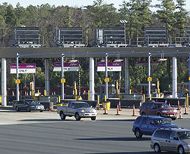


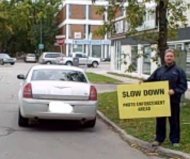


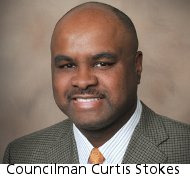




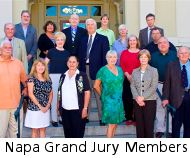


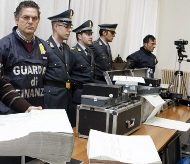


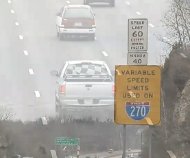


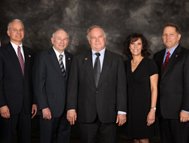

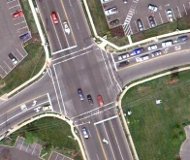
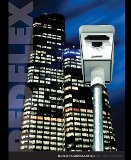

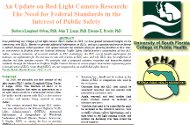
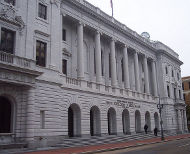




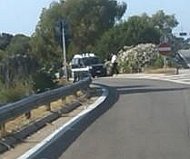


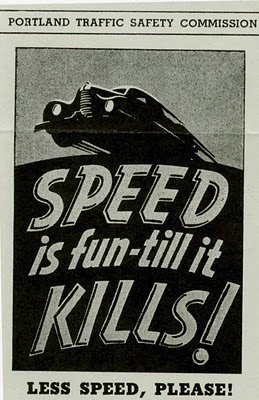



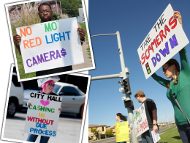
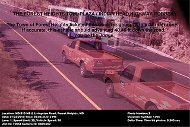

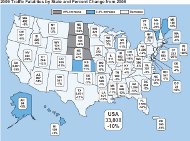
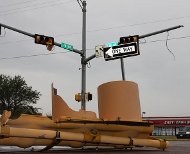

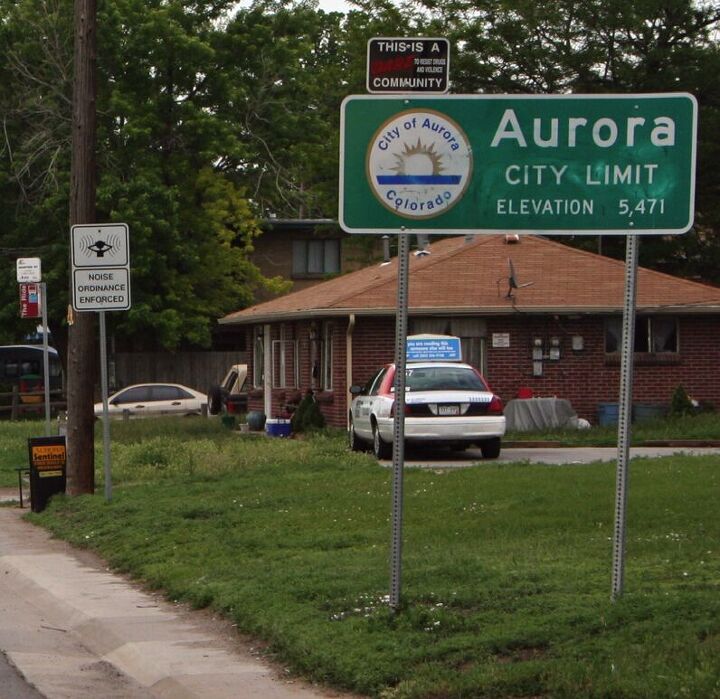
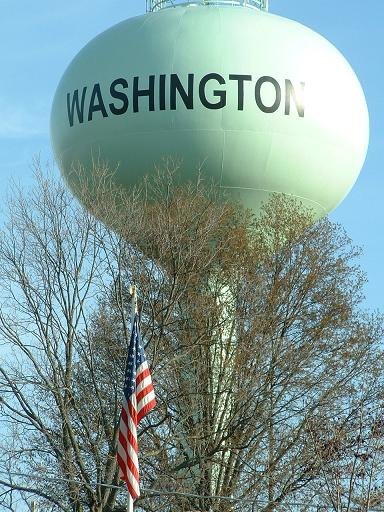

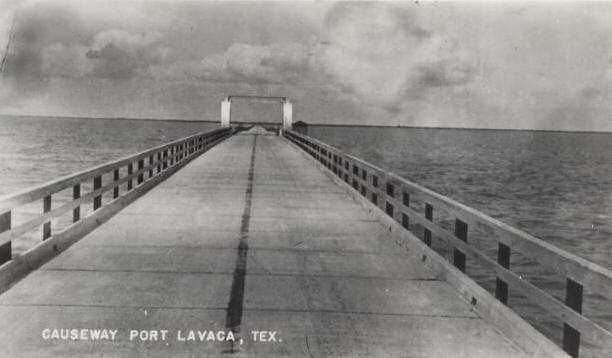

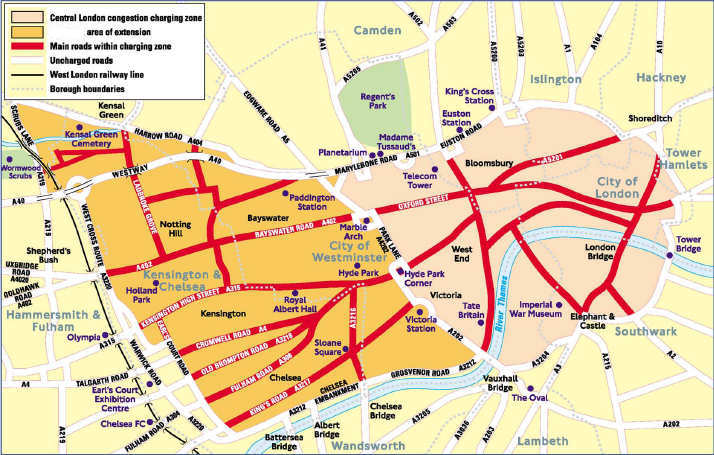

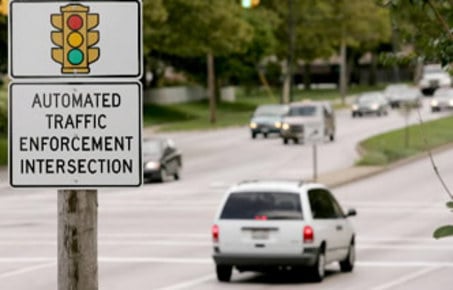
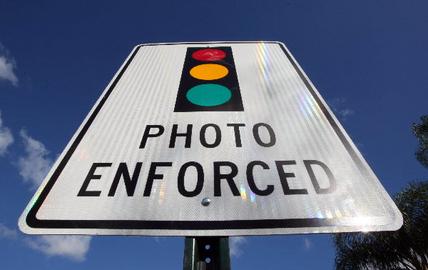
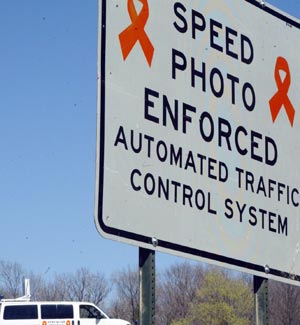












Recent Comments